The Feb. 13 Michigan State tragedy was the U.S.’s 67th mass shooting of 2023, once again stirring up heated emotions about our leaders’ passiveness towards gun violence.
In response, Peabody College’s Associate Dean for Equity, Diversity and Inclusion Nicole Joseph sent a condolence email on Feb. 16 to the community, crediting the AI text generator ChatGPT in the footing. The Vanderbilt Hustler first broke the headline, and a quick glance at the comment section reveals handfuls of blatantly racist comments, some unrelated entirely to the shooting — such as declaring diversity and inclusion initiatives as worthless. The Daily Mail went as far as sharing images of Joseph’s home and Facebook posts, arguing that the value of her home makes her EDI work hypocritical.
The adamant judgment and ongoing harsh criticism aimed at Joseph has proven to not solely be the product of some deep-seated aversion to gun violence nor a protest against administrative apathy toward grievous national matters. Rather, what may have begun as an exhausted universal stance against school shootings and a passionate outcry against the dismissiveness of university administration has turned into a national-scale and vulgar attack on a Black woman.
There are two women — the second being Assistant Dean of Peabody’s Office of EDI Hasina Mohyuddin — who were asked to step back from their roles due to this incident pending further investigation. Meanwhile, there is at least one known male professor at Vanderbilt with multiple sexual assault allegations. Our university just proudly hosted President Bill Clinton, the man behind a series of sexual misconduct allegations and an admitted adultery. That is not to say that these men didn’t deserve a second chance, but they were granted those chances with university backing. No support has been offered to Joseph publicly, with university leaders simply making impersonal statements on appropriate uses of AI in response. Students and faculty have received no communication from the university about the status of Joseph’s investigation or when she may return, if at all.
We’re taught that only certain people are offered second chances. This sentiment is drilled into both women and people of color from the earliest ages of academic and professional ambition; we must be twice as good to receive half as much. We cannot be on par with our white and male counterparts, nor can we make and recover from mistakes.
To me, it is laughable to believe that the many mass emails the Vanderbilt community receives from administrators following every unfortunate announcement of a student passing, every weighty national event and every prominent social movement was passionately and meticulously written by the email signers. As a student receiving consoling email after email about tragedy, I believe it has long been evident that scripts, templates and formulas probably have been the voices behind our university leaders. After receiving formulaic emails that sound eerily similar each time a tragedy occurs, it is hard not to assume that the university follows a script. All that separates these messages from the MSU response is that the true “author” was credited in the MSU response.
It is undeniable that artificial intelligence can’t replace the emotion behind human intelligence. The very least students deserve is to hear the authentic and unfiltered responses of their leaders when tragedy strikes. But, any argument specifically aimed against the ethicality of an administrator sharing words not written entirely by themself should have long ago challenged dozens of mass emails received by the student body with parallel intensities. Yet, past frustrations about email insensitivity have gained much less traction among the study body, including other emails about school shootings.
It is dangerous to prioritize the origin of the MSU response over the problem of gun violence. It is dangerous to undermine efforts to make minority students feel represented and included — and also deem diversity and inclusion a worthless waste of funding — over a moment of bad judgment. It is dangerous to — implicitly or explicitly, consciously or unconsciously — display prejudice when judging an individual’s actions. Cancel culture is harmful and misguided. I have heard more hateful comments directed toward Joseph than toward the MSU shooter.
In addition to continuing to hold The Hustler’s top trending spot since mid-February, the original ChatGPT email article has amassed over 60,000 views and has been followed up by multiple media outlets including CNN, The Washington Post, ABC and CBS.
The U.S. has a constant itch to tear people down and release suppressed bigotry and microaggressions disguised as “controversial opinions.” When there is no excuse to express racist, sexist, xenophobic, homophobic, antisemitic or Isalamphobic ideals, people wait in the wings for the slightest opportunity to validate their prejudices with the failures of those minorities. This phenomenon isn’t new; we see it in how the entire Islamic religion has been judged for the 9/11 attacks, how all immigrants are blamed for the immigration crisis or how Black men are stereotyped in the criminal justice system.
Black women are especially easy targets for the release of sexism and racism. To me, that’s why it’s not a surprise that an email intended for a campus community reached the doors of national news publications, has been the topic of thousands of Twitter threads and has remained trending for weeks on end as opposed to arguably heavier headlines. When Americans can finally scratch their itch, they will make certain to ruin as many careers and dignities as possible and exacerbate any evidence of minority misstep in the process.
Many of us were upset about the ChatGPT-written email because we care so much about the persistent danger of gun violence on college campuses and feel that the use of AI is inconsistent with responding to tragedy. Both sides of the aisle can agree that school shootings rank highly among our nation’s most shameful and pressing issues. We can agree that an artificially generated email response is not the appropriate action to support a freshly-wounded community of students. We could have agreed on those topics without nationally shaming our community members in the process. We could have focused our efforts on the real troubles at hand: school shootings and a lack of resources for a generation that grew up witnessing gun violence. We could have kept those troubles at the forefront by denouncing the racist and sexist comments of our peers, exaggerated and inaccurate portrayals of character, unfounded attacks on EDI and cancel culture. We could have demanded our campus leaders at least be consistent in how they respond to faculty issues and how they choose to support and reprimand employees in these situations.
We are now left to reflect and ask ourselves: In all of this clamor, what have we done for the issue of school shootings? What have we done for the victims of the shooting except move the spotlight away from their justice and onto our minuscule griping? What have we done as Vanderbilt students to leverage our education to facilitate today’s pressing conversations?
It is shortsighted of us to imply that a college administrator felt no personal dismay and anguish over the Michigan shooting. We can realistically assume that, despite the unethical method taken, there was some human thought behind the auto-generated email.
We have lost our ability to disconnect people from their mistakes, even from their very first offense. Until we do so, we are robbing ourselves and others of opportunities for learning and personal development. When will our community ever — as our university’s own motto challenges — “dare to grow”?





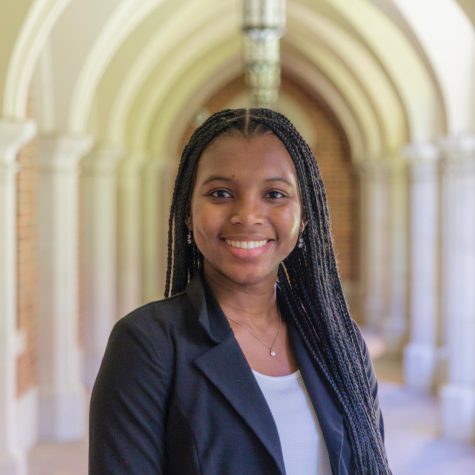


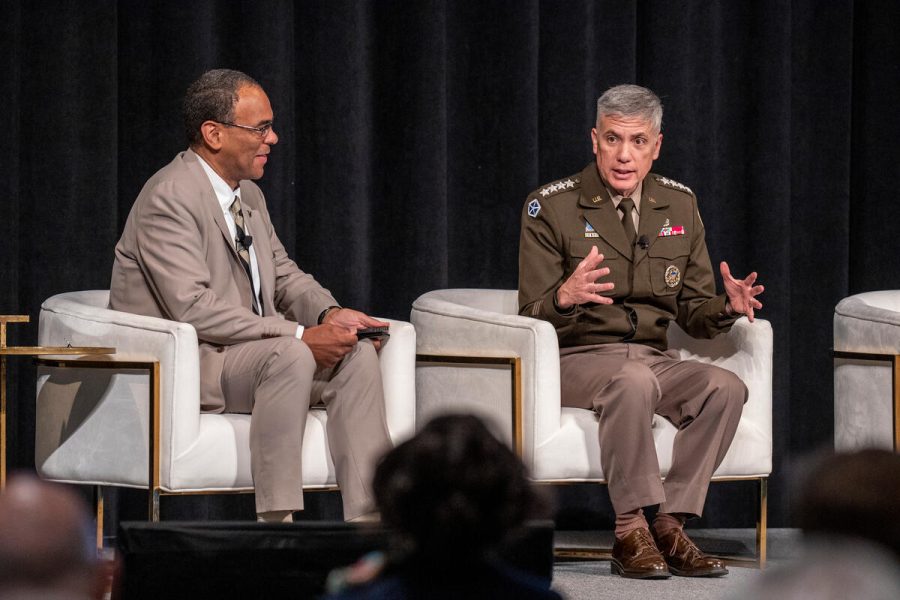

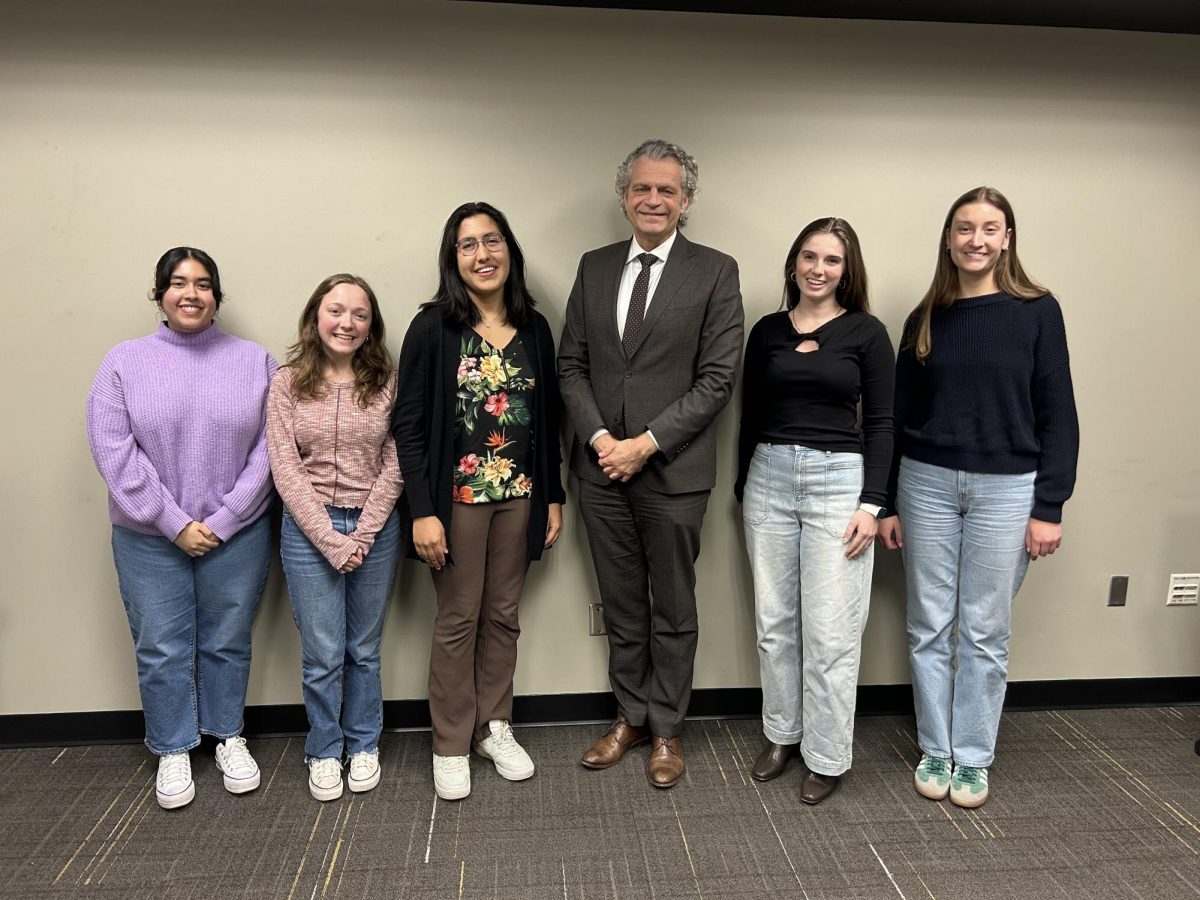

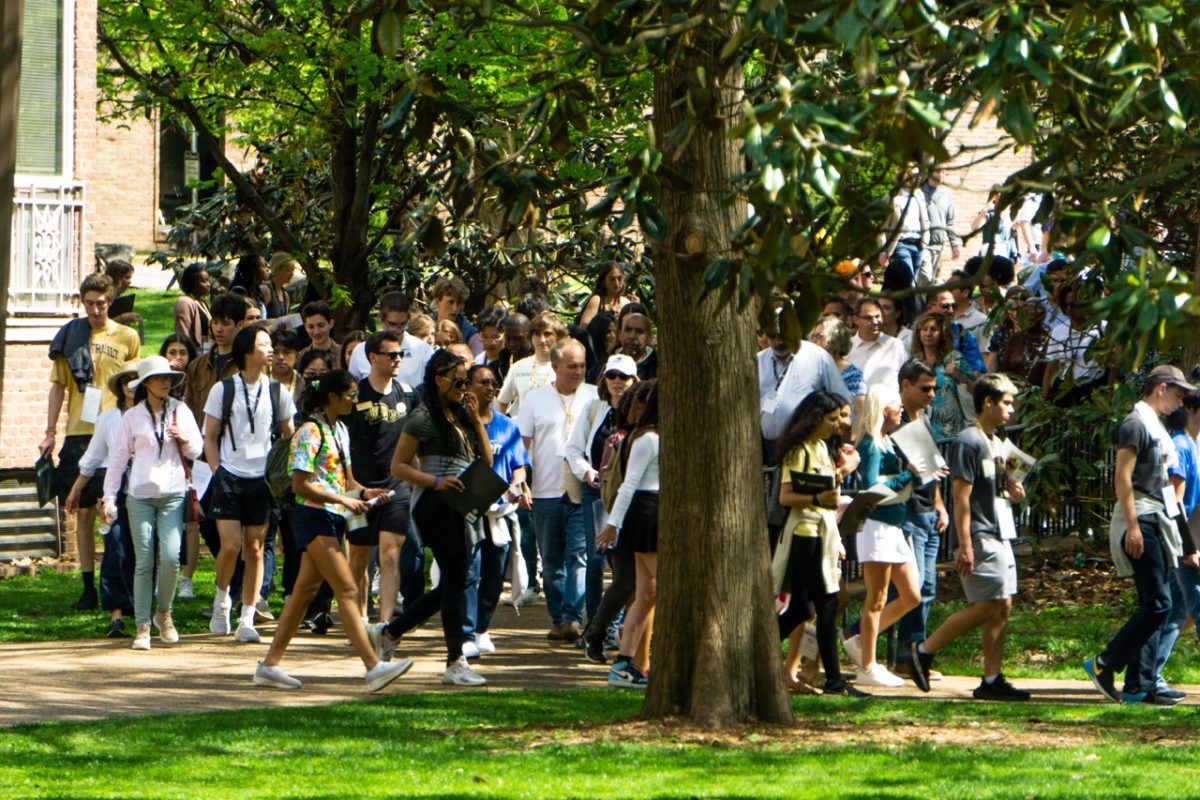
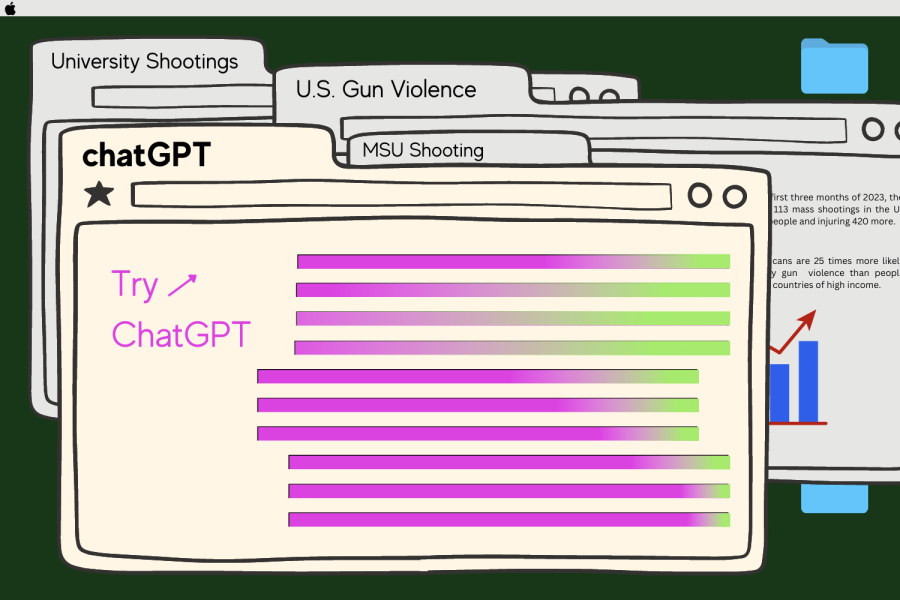


Greg Burke • Apr 20, 2023 at 7:45 pm CDT
The point the author misses entirely is that these DEI hires are proving that they were nothing more than a person who checked a box and that they were incapable of performing the tasks they were hired for. Bill Clinton was elected president over 30 years ago, and the world has evolved a lot in that time. So trying to compare what people put up with back then, vs. the post #MeToo world is a bit myopic. Yes, men like Bill Clinton need to be held accountable, and he has had more than a second chance. Bill Clinton has had more than a dozen chances. He raped Eileen Wellstone while studying at Oxford as a Rhodes Scholar, and was BARRED from the University’s campus. He later raped Juanita Broderick, sexually harassed Paula Jones, sexually assaulted Kathleen Wiley and Christy Zercher, and about a dozen other women. Bill in not held accountable because of the mainstream media’s left wing biases. Bill Clinton was best friends with Jeffrey Epstein, taking 26 trips on the Lolita express and spending time on Epstein’s private Island, Little St James. We need accountability. We also need to hire the best qualified people and remember the words of Dr. King…”We should judge people by the content of their character, not the color of their skin.” The modern Democratic Party is more concerned with group identity and identity politics than about being a meritocracy.
Jessica • Apr 11, 2023 at 8:55 pm CDT
I think that it was absolutely insensitive and ill judgement to use a AI chat to formulate a public communications from the University. I do believe in second chances but would they offer the same to a Vandy student who used ChatGpt to write an essay in class? Or would it be automatic plagiarism charge and removal from the course or University. Race and the color of their skin should not have anything to do with how wrong it was for them to do this. They are both highly educated women and know between what is wrong and right. Yes, people make mistakes and they deserve second chances but how do trust them not to make the same mistake again? How do we know it was the first time something like this was done by either individual? How do people build back their trust with their office and the communications that go out with their signatures? Yes University offices all seem to use templates in their communications so why did this office fail to do so? Both woman have been allowed to have their jobs back. How do they move forward in their office to show that we can do better?
Johon G • Mar 27, 2023 at 5:57 pm CDT
This article is astonishing given that the impression I perceived from it was to provide an alternative approach to the way we ,as humans, judge one another.
I agree that we can’t disconnect people from their mistakes. Although, I am not sure if we ever had that ability. I also believe we can’t disconnect facts from our judgments & this usually leads to unproductive conversations, which in my opinion is futile.
*We is a reference to us people as a whole.
Sophia • Mar 27, 2023 at 4:26 pm CDT
Incredibly well written. I agree, certain behaviors like sexual harassment and assault are incredibly normalized, thus posing less of a reputational threat for administration and making it easier to protect the perpetrators/condone their behavior (esp when the system already has incentive to protect powerful white men). I also feel like the separation of individuals and their actions should take into account administrative factors that influence those actions. As is an automated email reflects not only the writers personal lack of diligence, but more broadly probably the Vanderbilt administrations set way of handling communication about external crisises. Compared to more personal, private actions,
martin • Mar 26, 2023 at 12:57 pm CDT
i understand where u r coming from w this. i think the equity and inclusion stuff shouldn’t be attacked, but also this was a really bad thing to do the chatgpt email and i think that your article does not really acknowledge that enough
Elona Deprez • Mar 26, 2023 at 8:43 am CDT
???? well said!
Stephen L • Mar 25, 2023 at 9:41 pm CDT
I genuinely wonder whether the author would be similarly forgiving toward so many other prominent figures who’ve been subject to immediate defenestration simply for expressing views at odds with the identitarian mob, like JK Rowling, Dave Chappelle, or Kevin Hart. The irony is not lost otherwise. Either way, the magnitude of this error was great given the national epidemic of gun violence and the deafeningly sterile institutional reaction to it. The fact that it was perpetrated by a superfluous bureaucrat whose checks are signed by a university whose students commit themselves to abide by an Honor Code that prohibits plagiarism, among other things, is similarly galling.
zoey g • Mar 26, 2023 at 4:56 pm CDT
I understand and somewhat agree that an large misstep occurred in sending an email responding to the magnitude that is gun violence, but I don’t think is comparable with your example. Figures like Rowling, Chappelle, and Hart have arguably faced no real consequences for spewing transphobic and homophobic rhetoric though they should have. The ideas aren’t just simply at odds with “cancel culture” (which isn’t real), but this rhetoric manifests in systems and legislation.
I think it’s ironic that all Vanderbilt could say about the death of Tyre Nichols January was 3 sentences and referrals to different support systems around campus.
Stephen L • Mar 27, 2023 at 12:58 pm CDT
We agree in that I certainly don’t think they’re perfect analogues, I was just pleasantly surprised by the author’s desire to “disconnect people from their mistakes” given our instinct, especially at top universities and other such ideological enclaves, has shifted in the precise opposite direction. I can’t speak much for Rowling, who seems to be doubling down on her “protect women” rhetoric in ways I’m not inclined to agree with (even as of my first comment a couple days ago), but both Chappelle and Hart are comics who have ostensibly had their reputations and livelihoods damaged by their acts (which may not even reflect their actual opinions). The most transparent example is Hart resigning from hosting the 2019 Oscars after years-old tweets prejudicial toward gay people were uncovered. Would the author favor forgiving him given the time that’s passed and his sincere contrition?
This is all somewhat tangential, of course, but I would argue we ought to hold university administrators to even higher standards than we hold fiction authors, actors, and comedians. When I enrolled at Vandy in 2013, I signed my name to the Honor Code prohibiting plagiarism and other forms of academic fraud, and the author has necessarily done the same. I knew classmates who failed courses for plagiarizing documents or submitting otherwise fraudulent material (too creative to describe further here). How should they feel when they find out the administrators who maintain this apparatus for their supposed betterment aren’t held to the same standard?
2018 Alumnus • Mar 28, 2023 at 1:43 pm CDT
While I disagree with the impact things like this AI generated email, and the impact of things like a public figure directing hate towards a group like JK Rowling and Dave Chapelle have done to different extents, I think the heart of your point and Harris’s point are correct. We have to stop “defenstrating” people for mistakes or simply counterculture views, especially people who have less power. I for one am ready for an era of forgiveness and all around just chilling out about these kind of things, and that includes people espousing conservative or counterculture views.
Melissa Gresalfi • Mar 25, 2023 at 5:09 pm CDT
Elise, this is beautiful and so powerful. Thank you for writing this.